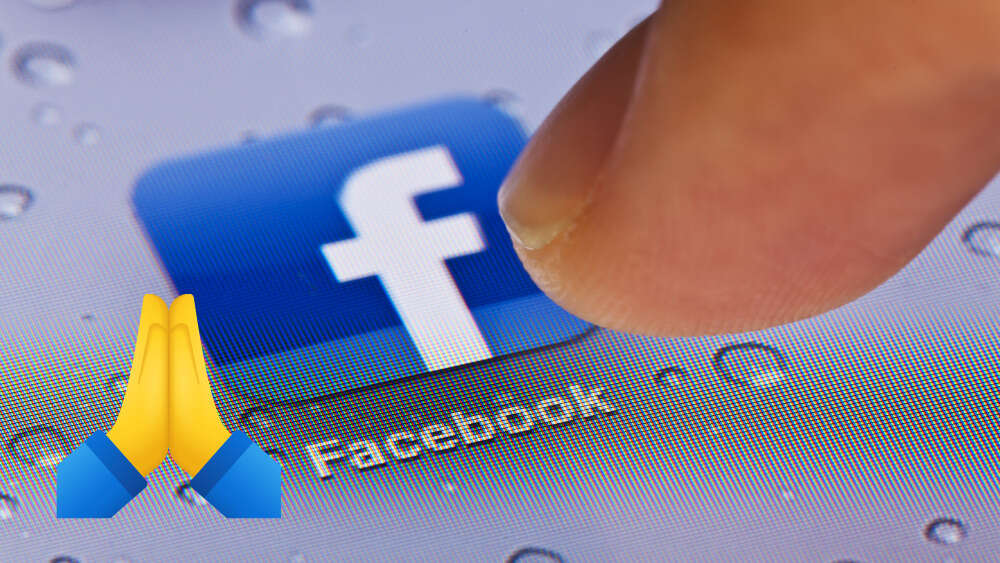Facebook has a new prayer tool, but is it serious about reaching faith communities?
Facebook has recently launched a new prayer tool, drawing both the praise and concern of Christians.
The new prayer tool is available for use in U.S. Facebook groups. It allows group members to post prayer requests for other group members to see. Group members can then pray and let the prayer requester know they have done so with the click of a button.
Below the prayer request, the names of those who have prayed are tallied, just as the names of those reacting to any Facebook post are. The most interesting aspect of the new tool is that group members can choose to receive a notification reminding them to pray for the situation again the following day.
Facebook’s tool is not especially innovative or unique. At Hillsong Church’s online Colour Conference in March this year, the same concept was executed in a digital ‘Prayer Wall’ where conference delegates posted their prayer requests. Other delegates could indicate they had prayed for them by clicking on the request and holding it down for several seconds. This caused a real-time alert to be sent to the requester, saying (for example) “Amanda just prayed for you”.
Yet while Facebook’s release may not be especially digitally noteworthy, the company’s declared interest in faith groups is.
Facebook has signalled its interest in faith communities for some time now. The company established a team focused on faith partnerships back in 2017. And in the same year, CEO Mark Zuckerberg recognised churches in his statement on building a global community.
“Building a global community that works for everyone starts with the millions of smaller communities and intimate social structures we turn to for our personal, emotional and spiritual needs. Whether they’re churches, sports teams, unions or other local groups, they all share important roles as social infrastructure for our communities.”
More recently, Chief Operating Officer Sheryl Sandberg described faith communities as representing “the best of Facebook”, saying, “we hope to keep it that way, now and in the future”, at a virtual faith summit held in June this year.
Some Christians are more pleased than others to see the social media giant’s attention turned on people of faith. Robert Jeffress of First Baptist Church in Dallas, a Southern Baptist megachurch, told Christianity Today, “Facebook and other social media platforms continue to be tremendous tools to spread the Gospel of Christ and connect believers—especially during this pandemic.”
Other Christians have noted that social media can overcome practical obstacles that physically stop people from attending a church.
“They’re much more likely to get on and make a comment than they are to walk into a church right now,” Jacki King, the minister to women at Second Baptist Conway, a Southern Baptist congregation in Conway, Arkansas, told Christianity Today. “It opens a line of communication.”
But others have cautioned Christians who use the prayer tool to keep in mind that Facebook is a business selling a product – making Christian users just one of their customers.
Nona Jones, Facebook’s head of faith partnerships, told Reuters that “COVID gave new urgency” to the company’s efforts to engage with faith communities. Facebook created the new prayer tool after the company saw an increase in people asking each other for prayers during the pandemic, she said.
In the interview, Jones confirmed that Facebook would use prayer posts to personalise ads for users, just as they do with other content users post. However, Facebook has also said information given in prayer posts will not feed into the categories that ad buyers use when choosing who to target in their advertisements directly.
This means that while the information in a prayer request will feed into Facebook’s systems – the systems that determine which ads to direct to which user – an ad buyer won’t be able to choose to direct an advertisement straight at users who post a prayer request.
But if Facebook is interested in meeting the needs of faith communities, perhaps now would be a good time for the company to consider how they can prevent the platform from being used in the persecution of people of faith.
This issue was highlighted recently in an Open Doors UK report entitled Destructive Lies. The report detailed the key role social media plays in the state-sanctioned cycle of prejudice, discrimination, and violence directed towards Christians and Muslims in India.
Researchers from the London School of Economics and Political Science, who were commissioned to undertake the research, say technology companies and people with power within social media networks play a significant role in addressing the problem. They even outlined 8 recommendations (pages 12-13) for social media corporations and media outlets, including training human moderators and AI to identify content and groups that target religious minorities and ensure its prompt removal.
Email This Story
Why not send this to a friend?



